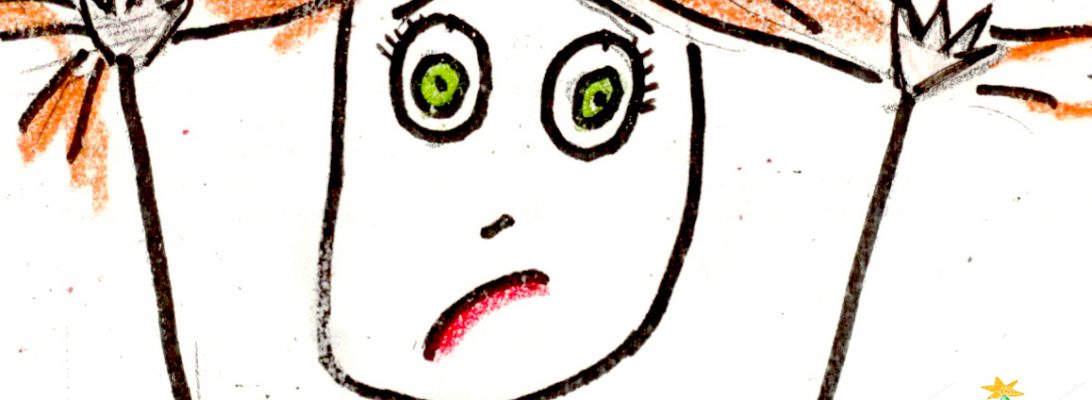This isn’t a criticism, more of an observation. “Sorry!” has become a social nicety, a social convention, that seems to have gone terribly wrong. Over-saying sorry not only dilutes its true meaning, it can also be a way we in which we unwittingly dismiss ourselves and allow others to follow suit.
Let’s look at 4 Unnecessary Apologies, see if you recognise yourself:
1 The ‘sorry-for-having-feelings’ sorry:
It happens every week in therapy. Someone sits in front of me crying, and inevitably I hear a muffled “sorry”. I’ve done it myself actually, and you probably have too. Sniffing away, in utter torment and then we suddenly find ourselves apologizing. Apologizing for having a feeling and expressing it. What’s that about?!?!
Insight: One of the goals of therapy is to help people to express their emotions – all of them – in a healthy way. Being with someone who is able to cry is a privilege – because emotions are the gateway to healing.

We don’t apologize when we express most other feelings. We don’t feel hope and then say sorry for it. We don’t laugh and then apologise for it. (Well, rarely, unless it is actually inappropriate to laugh, which is usually terror or sadness in disguise anyway..) Are we apologizing for exposing the listener to our pain? Are we apologising for not feeling happy and being ‘abnormal’? If someone witnesses our pain are we causing them pain? (The answer is no by the way, even if they are uncomfortable, we are not the true cause of that. But that’s for another post). In fact that someone might be perfectly OK with it, possibly even flattered, privileged!
Think about it: would you want an apology from a friend/a child for expressing feelings in a healthy way?
2 The ‘tic’ sorry:
“uhmmm…Sorry, could I ask you a stupid question?” “Sorry, what time is it?” “Sorry, could you repeat that?”
Sound familiar?

This poetry slam reader observed of herself – “I asked five questions during that lecture and each of them began with the word “sorry”. (skip to 2:50 if you’re stuck for time, hear the gasps) It’s had over 4 million views – 4,000,000!!! Clearly, a lot of us relate.
Asking a question is, of course, not something for which we need to apologise. Sorry has become a substitute for “may I have your attention for a moment please?” It has also become a filler, an unnecessary word, that’s why we call it a tic.
Unfortunately, it is a way of minimising our needs. We would do well to be aware of how often we say it, as it can make us less effective communicators.
Take this example: “I’m sorry, this soup is cold, could I please have it heated up?”
Simply take out the “I”m sorry”, you could add in a ” Hi”, or “Excuse me,”. Different now isn’t it?
Insight: Sometimes a ‘tic’ sorry is evidence of having learned that we are an inconvenience, or that we are being troublesome. This might come from our family background, or it may be a faulty message that we’ve learned from an abusive partner or friend. Somehow, we develop a feeling of “less than”. If this resonates with you then a good therapist can support you through these feelings.
(Incidentally this ad by Pantene is great, even though it’s an ad and is directed solely at women…. I’m not apologising for that though ;). It’s only a minute long – give it a watch.)
3 The ‘fright’ sorry
You know how it goes. You’re walking along, enjoying yourself, daydreaming, planning your day. Then it happens. Maybe they don’t see you, they’re texting, or they’re watching something across the street, or blowing their nose. Whatever. Next thing – Bang! You’ve collided, despite your best efforts. It hurts. You’re winded, broken ribs crack as you fall to the ground gasping “Sorrryyyyyyy”… Ok , well…slightly exaggerating.
The person walks on oblivious while you have accepted responsibility by saying sorry. And all that’s left is your unnecessary apology hanging in the air and you wish you could unsay it.
This is another habit (usually only happens to those of us who already say a lot of ‘unnecessary sorry’s’ though). It’s like an automatic reaction to an unexpected situation, so don’t beat yourself up over it. Instead, think about what you might do/say/think the next time, or possibly how to review the situation/incident with the person(s) involved.

4 The ‘fear’ sorry
So, this one is the most serious. I see this one as a defence. For many, an effective one, at least temporarily. Perhaps women in particular do the ‘fear sorry’. Most of us are taught from an early age to not put ourselves in dangerous positions, to make things easier, fix them, keep the peace. Often, we do this by saying sorry, it’s a smoothing-over sorry. A please-leave-me-alone-let-this-be-the-end-of-it sorry. We (men and women) need to be careful with this sorry that we don’t become long-term victims, that we don’t take more than our share of responsibility in arguments, or worse. The fear sorry is either a simple habit that we bring out of the habit bag occasionally, or:
Insight: You may have been taught that if you ‘get yourself’ hurt you’ve no one to blame but yourself. You may have been taught that you are responsible for someone else’s rage or violence. People who are routinely abused tend to apologise for being abused. While we are ultimately responsible for putting ourselves in vulnerable positions, we do need to be careful that we don’t apologise to others for being abused or for ‘provoking’ abuse. (“I’m sorry for making you angry” etc). We especially should not apologise to our abusers. This is something therapy can really help with.
Try This:
Next time you catch yourself saying sorry do a quick check:
1. Was that sorry necessary?
2. If not, do I need to do or say something else? Have I dismissed myself? Have I let someone off the hook? Am I afraid?
My next two posts will be looking at fake apologies and how to spot them, and real (or necessary) apologies and how to make them and how to accept them
Sorry – gotta go! (See what I did there??)
Feel free to comment and /or sign up over there on the right (or scroll down if you’re on your phone or tablet!) if you’d like to receive new posts as I post them.










![medium_light-yogurt-skinny-small-78283[1]](http://sallyoreilly.com/wp-content/uploads/2015/05/medium_light-yogurt-skinny-small-782831.jpg)




